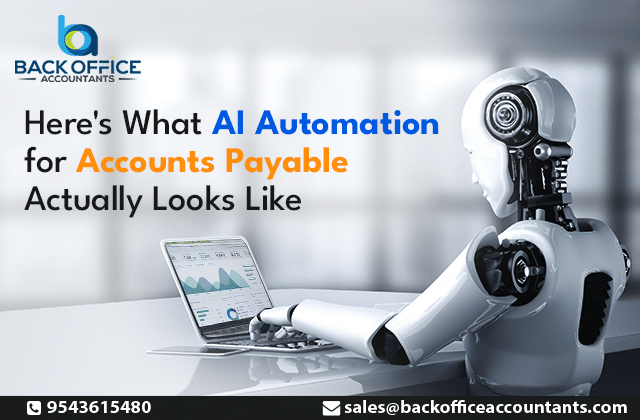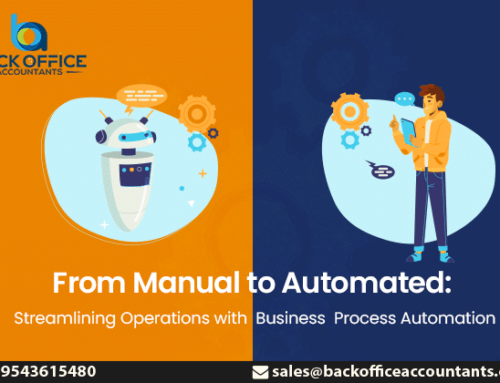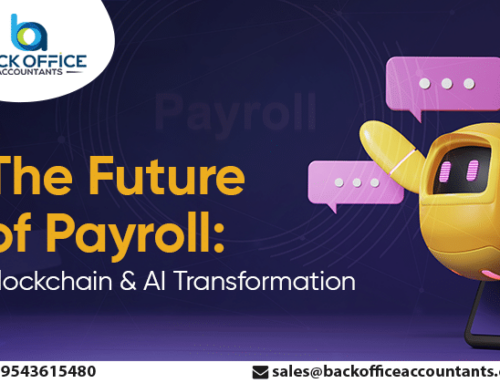With the rapid development of financial management, AI-driven automation substantially altered the way firms manage their accounts payable. In this blog, we’ll explore how AI automation can be effectively used in accounts payment operations and examine its real-world impact. Come along as we explore the real potential of AI automation for accounts payable.
Understanding AI in Accounts Payable
Understanding artificial intelligence in accounts payable means knowing how these technologies change the traditional ways of managing financial transactions in a company.
Artificial intelligence (AI) includes technologies like data analytics, machine learning, and natural language processing. These tools aim to simplify and streamline accounts payable tasks.
In its basic form, accounts payable AI improves and simplifies a number of aspects of the invoice lifecycle. The first step is the use of AI-driven data collection methods to extract information from invoices in any format or style.
These systems use machine learning to identify patterns, improving efficiency and reducing manual data entry. The extraction feature also captures key invoice details like vendor info, invoice numbers, line items, amounts, and due dates.
AI also makes automated procedures for invoice assessment and approval possible. By utilizing past data and specified rules, AI systems compare bills to purchase orders, contracts, and established business norms. As a result, this automation not only improves productivity but also ensures compliance by speeding up the approval process. Furthermore, it helps in reducing mistakes and inconsistencies, leading to more accurate and efficient operations.
AI-Powered Invoice Processing
AI-powered invoice and accounts payable processing automates and optimises many phases of invoice management, revolutionising conventional processes in the process. Below is a quick overview of its main elements:
- Automated Data Capture: AI uses OCR and smart algorithms to extract key details from bills, including vendor info, invoice numbers, dates, and items.
- Data Validation and Verification: Machine learning algorithms compare invoice data with past transactions, purchase orders, and criteria to ensure accuracy and compliance. Any differences are flagged for additional inspection.
- Invoice Classification and Categorization: AI-powered invoice classification makes sorting easier by quickly assigning invoices to the right departments or projects based on set criteria.
- Workflow Automation: By automating the routing of bills for approvals, AI-driven solutions minimise the need for human interaction, speed up the approval process, and maintain standard procedures.
- Integration with ERP Systems: Seamless interaction with ERP systems ensures accurate and synchronized data transmission. This prevents duplicate inputs and maintains consistency across financial platforms.
Vendor Management with AI
AI-driven vendor management transforms the way companies develop their relationships with suppliers. Utilising cutting-edge technology transforms the entire vendor lifecycle. AI expedites the onboarding process by quickly evaluating the credentials and performance of vendors based on predetermined standards.
It keeps an eye on supplier performance all the time, anticipating any changes and allowing for early adjustment. Artificial Intelligence (AI) facilitates strategic vendor alliances and contract negotiations by enabling decision-making through predictive insights.
Furthermore, by promoting cooperation and personalising interactions, AI improves relationship management. It ensures efficiency and transparency in transactions by accounts payable automation communication channels. Businesses optimise negotiations and get favourable terms and conditions by utilising data-driven insights.
In the end, this AI-driven strategy increases productivity, reduces risks, and fosters a win-win partnership with suppliers. This builds a dynamic supply chain, enabling informed decisions, adaptability, and alignment of vendor plans with goals.
AI Approval’s Challenges and Solutions
Difficulties with AI-powered approval procedures
- Concerns about Accuracy: Early AI systems can struggle to identify complex patterns or understand complicated situations, leading to incorrect approvals or rejections.
- Absence of Training Data: Biased or incomplete training data can result in poor AI models, which, in turn, lowers decision-making accuracy.
- Regulatory Compliance: It can be difficult to ensure that AI-driven approvals respect legal and regulatory frameworks in a fair, transparent, and compliant manner.
- Interpretability: The lack of transparency in the decision-making processes of AI models might make it difficult to comprehend the reasoning behind a given conclusion.
Ways to overcome these obstacles:
- Continuous Improvement: Over time, accuracy is increased by frequent model updates and modifications depending on user feedback and fresh data.
- Robust Training Data: AI model accuracy and fairness improve through large, diverse datasets and bias removal methods.
- Explainable AI: Putting algorithms in place that offer insights into the decision-making process improves compliance and transparency.
- Human supervision and Intervention: By combining human supervision with AI’s speed, we can ensure that important judgments are checked for justice and correctness.
- Regulatory Adherence: By incorporating compliance checks into AI algorithms, approvals are ensured to adhere to ethical and regulatory requirements.
AI-driven automation in accounts payable operations has redefined convenience and dependability in the fast-changing field of financial management. Back Office Accountants is aware of the significant benefits AI automation brings to the simplification of accounts payable procedures.
We help companies improve financial operations, bookkeeping and accounting services, making them effective and forward-thinking. We allow companies to gain advantages from expedited invoice processing, improved vendor management, and rigorous approval processes with AI-driven solutions.







